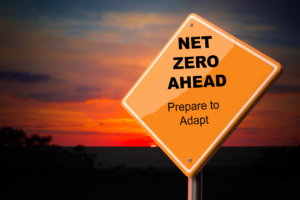I have discussed, on several occasions, the importance of public/private partnerships in jumpstarting the development process. One of the reasons that globalization critics resist its inevitably is because historically, corporations have been notoriously exploitative. Globalization is seen as another attempt by corporations (and their fat cat stockholders) to get even richer at the expense of the poor. While corporations may be slow learners, I believe there are good reasons to be sanguine about the future. Few corporations have come under greater scrutiny or received harsher criticism than Wal-Mart. An article in today’s Washington Post discusses how Wal-Mart is trying to become a better corporate citizen [“A Bid to Get Religion? Wal-Mart Hires Ex-Nun,” by Kim Hart]. The article, of course, isn’t about religion per se, but how Wal-Mart is trying to demonstrate its commitment to change by hiring someone with impeccable credentials to steer its corporate policy in the areas of the environment, healthcare, and labor relations — that person is Harriet Hentges, a former nun and foreign conflict mediator. The article indicates that Hentges will work with non-governmental organizations, government agencies, and academic groups. A skeptic could assume that Hentges new position is mere eyewash and that she will affect public relations more than corporate policy, but her curriculum vitae is impressive and her integrity unimpeachable.
In 1958, Hentges joined the order of the Sisters of St. Joseph of Carondelet, a group known for its work in education and health care. Clark said she did not know why Hentges left the order in 1972. Hentges could not be reached for a comment yesterday. Hentges served as chief operating officer of the League of Women Voters before joining the United States Institute of Peace, where she led mediation and reconstruction efforts in Iraq and the Balkans. She earned a PhD in international economics from Johns Hopkins University.
Before being accused of being a paid spokesperson for Wal-Mart, I admit that I’m taking a wait and see attitude as to whether Wal-Mart spokeswoman Sarah Clark’s claim that the company wants “to be up front and do [its] part to be a better business,” is true. It’s easy to put PR spin on one’s actions. For example, the article indicates:
In recent months, the company has reached out to several environmental groups, such as the Natural Resources Defense Council and Environmental Defense, and has begun a program to teach its 1.3 million U.S. workers about healthy living and energy conservation.
I’m not sure what Wal-Mart is doing with the environmental groups, but the businessman in me says the latter activities have more to do with increasing profits (by reducing energy costs, absenteeism, and health costs) than with any genuine concern about workers quality of life. Patricia Wolf, executive director of the Interfaith Center on Corporate Responsibility, isn’t so much impressed by Hentges religious affiliation (“She probably hasn’t been a nun for a very long time”), but is impressed by the rest of her résumé. Wolf indicates that Wal-Mart may be the first large company “to hire someone with Hentges’s background to a position of such stature.”
Although Wal-Mart is under the microscope in this article, the bright lights of the press have also focused on others — Nike readily comes to mind. Even when companies do the right thing for the wrong reasons, there is some progress. Corporations that do the right thing will eventually discover that it pays off. A Resilient Enterprise is one that works with rather than exploits local workers, governments, and the environment. A good rule of thumb for any business to operate by is don’t do anything you wouldn’t be happy to discuss if you read about it on the front page of the New York Times — because you probably will.




